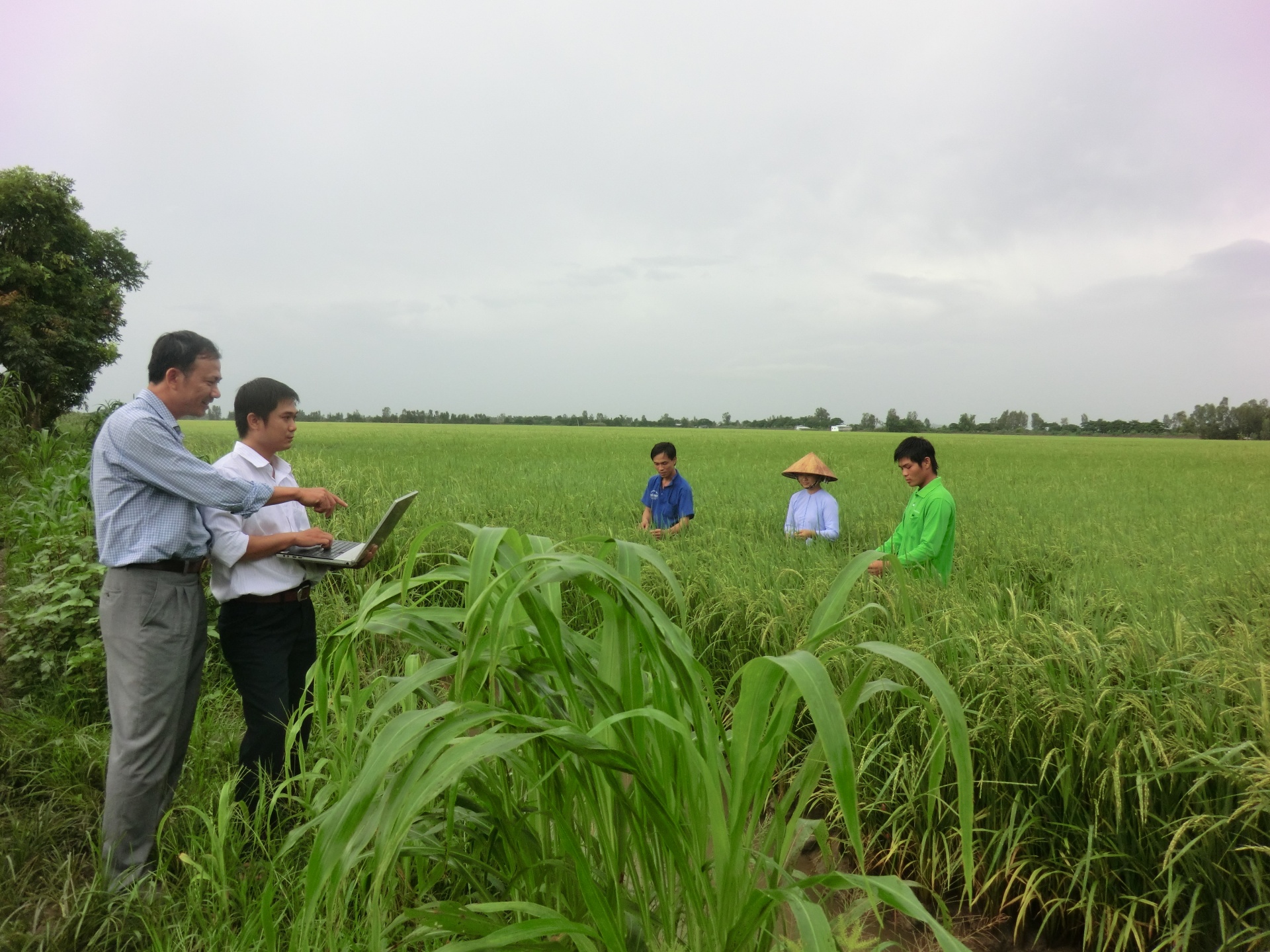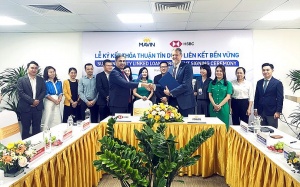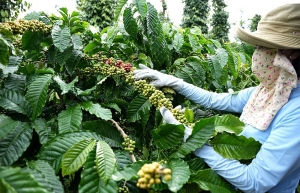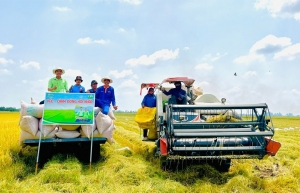Australian-Vietnamese collaborations secure $1.45 million to advance agricultural innovation
Managed by CSIRO, Australia’s national science agency, the Aus4Innovation programme announced funding for three projects on August 1 that aim to address the complexities of modern agriculture through the use of high-tech solutions.
 |
The impact of these projects will enhance agricultural productivity, include market development for agricultural outputs, and address efforts for climate change adaptation and mitigation.
Kim Wimbush, CSIRO counsellor to Vietnam and director of the Aus4Innovation Programme, said, "The projects will use AI for carbon farming, geospatial technology to provide real-time crop data, and digital traceability and certification to enable more sustainable farming. Advancing technological solutions for local farmers in Vietnam by working with farmers, industry, and research institutes will build enduring capacity and skills to help reshape Vietnam’s agriculture practices."
“These projects will not only have an impact on individual smallholder farmers, but shape the sector through adoption of these solutions more broadly," Wimbush said.
Partnering Griffith University and the University of Southern Queensland with the innovation ecosystem in Vietnam means the universities can test products at scale and speed in a unique market and bring the successful techniques back to the Australian agricultural sector.
Recipients of the Aus4Innovation Partnership Grants also benefit from CSIRO’s support through connections to its network of innovators and industry partners, guidance on gender and disability responsiveness and social inclusivity, and access to partnership brokering experts. This will help to ensure the success of projects and fortify the collaboration between Australian and Vietnamese entities within each project.
Three projects will be funded through this round of partnership grants. First is improving crop monitoring and access to information by smallholder farmers and government decision-makers in Vietnam. As a collaboration between the University of Southern Queensland and the Vietnam National Space Center, this initiative will harness geospatial technologies to provide vital crop information, aiming to boost productivity.
Second is proactive carbon farming with AI and digital twins for sustainable agriculture in Thanh Hoa province. Griffith University and Hanoi University of Science & Technology will develop an AI-driven platform to better quantify greenhouse gas emissions and enhance carbon farming, ultimately contributing to sustainable agricultural practices and revenue opportunities through carbon credits.
Third is empowering smallholder farmers through AI-powered certification and traceability for sustainable agriculture. Griffith University is partnering Vietnam’s Commission of Standard, Metrology, and Quality on this project aim to elevate standards in agriculture through an AI and digitalisation system that ensures effective farm monitoring and product traceability.
The Aus4Innovation Programme is a 10-year, $21.8 million flagship initiative lasting to 2028, aimed at strengthening Vietnam’s innovation system to support inclusive and sustainable socioeconomic development.
The programme is funded by Australia’s Department of Foreign Affairs and Trade, co-funded and managed by CSIRO, and delivered in a strategic partnership with Vietnam’s Ministry of Science and Technology.
 | Mavin shakes hands with HSBC on sustainable agriculture deal Mavin Group and HSBC Vietnam have just signed a "Sustainability Linked Loan Agreement" in Hanoi. The financing agreement represents a significant milestone in Mavin Group's sustainable development journey. |
 | Nestlé supports farmers to advance regenerative agriculture More than one-third of global anthropogenic greenhouse gas (GHG) emissions come from agriculture, and the sector also accounts for 70 per cent of global freshwater withdrawals. Therefore, transitioning from traditional farming methods to low-emission, regenerative agriculture is considered one of the most important solutions to respond to climate change and contribute to the development of sustainable food systems. |
 | Sustainable agriculture and the indispensable human factor If a country wants to develop a sustainable agriculture, it cannot ignore the human factor, especially the farmers in the value chain. And in Vietnam, a number of leading enterprises in the agricultural sector have been deeply involved in the value chain with practical and effective solutions. |
What the stars mean:
★ Poor ★ ★ Promising ★★★ Good ★★★★ Very good ★★★★★ Exceptional
Related Contents
Latest News
More News
- Trung Nam-Sideros River consortium wins bid for LNG venture (January 30, 2026 | 11:16)
- Vietnam moves towards market-based fuel management with E10 rollout (January 30, 2026 | 11:10)
- Envision Energy, REE Group partner on 128MW wind projects (January 30, 2026 | 10:58)
- Vingroup consults on carbon credits for electric vehicle charging network (January 28, 2026 | 11:04)
- Bac Ai Pumped Storage Hydropower Plant to enter peak construction phase (January 27, 2026 | 08:00)
- ASEAN could scale up sustainable aviation fuel by 2050 (January 24, 2026 | 10:19)
- 64,000 hectares of sea allocated for offshore wind surveys (January 22, 2026 | 20:23)
- EVN secures financing for Quang Trach II LNG power plant (January 17, 2026 | 15:55)
- PC1 teams up with DENZAI on regional wind projects (January 16, 2026 | 21:18)
- Innovation and ESG practices drive green transition in the digital era (January 16, 2026 | 16:51)

 Tag:
Tag:




















 Mobile Version
Mobile Version